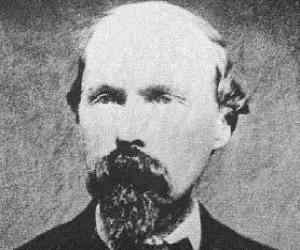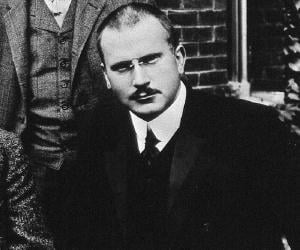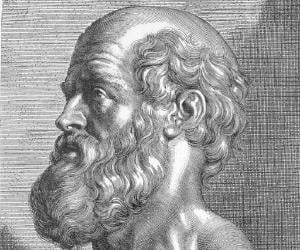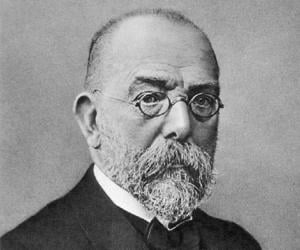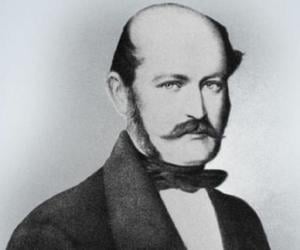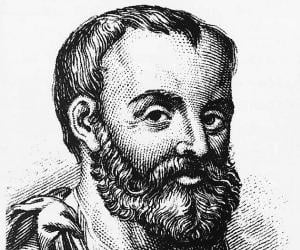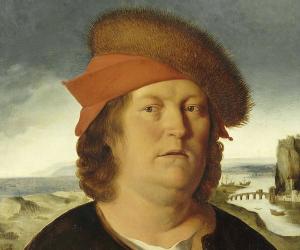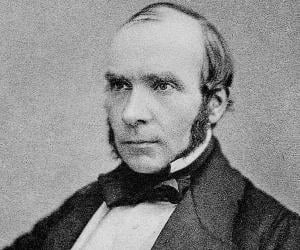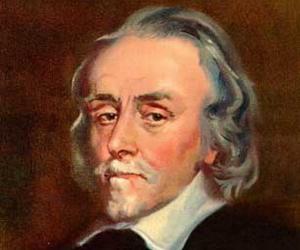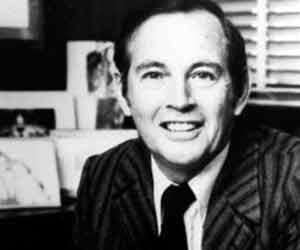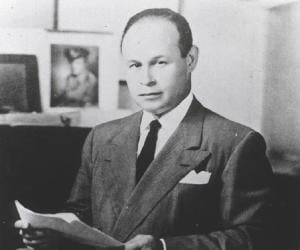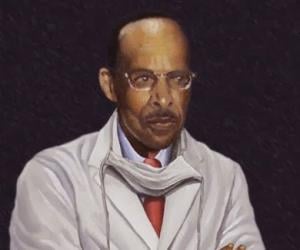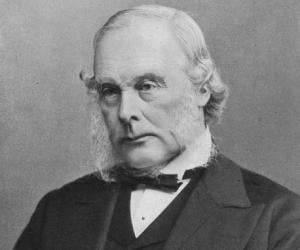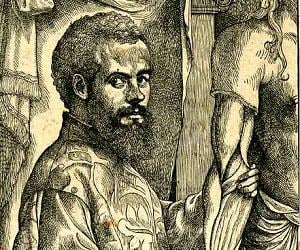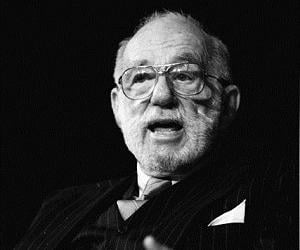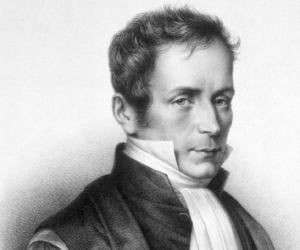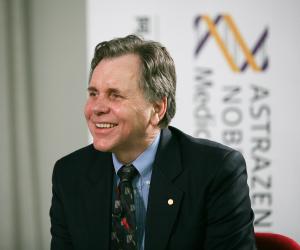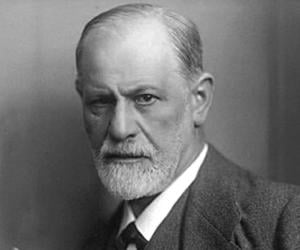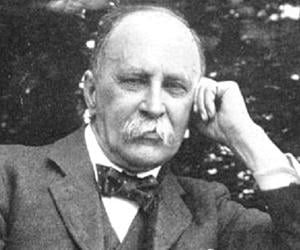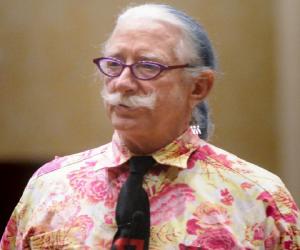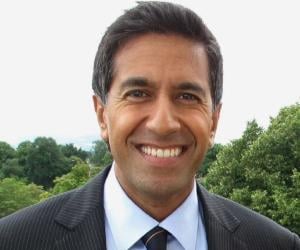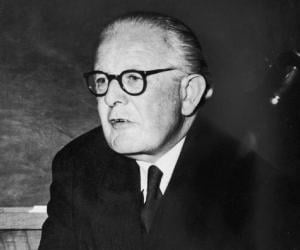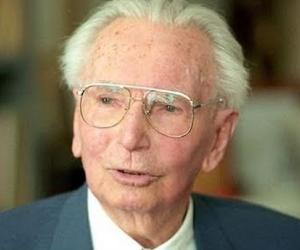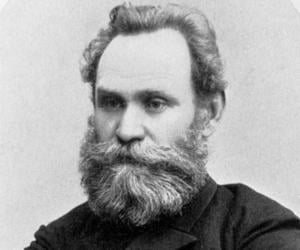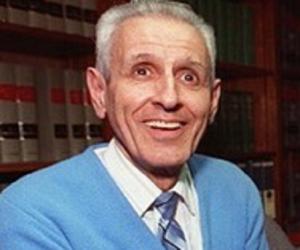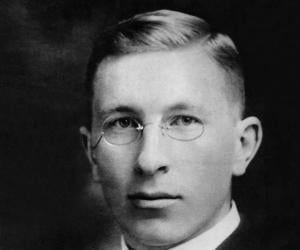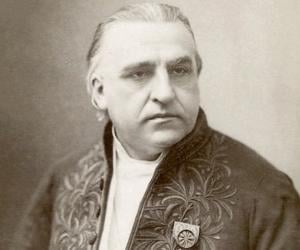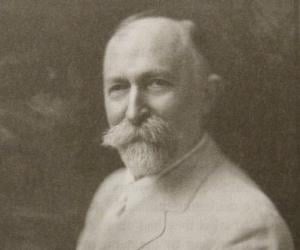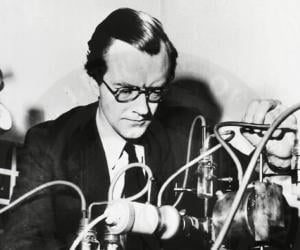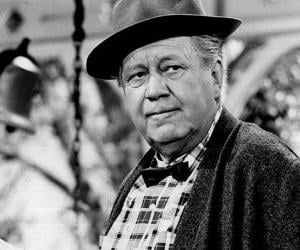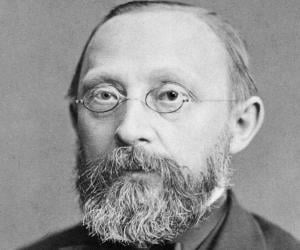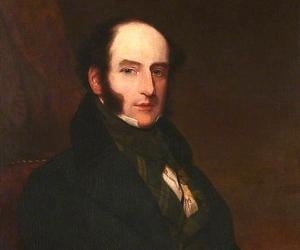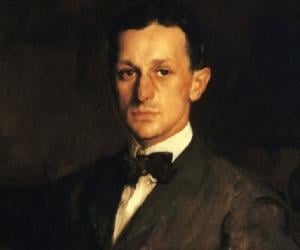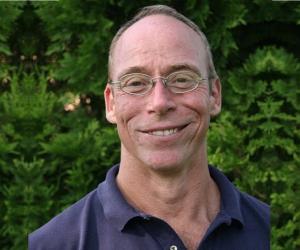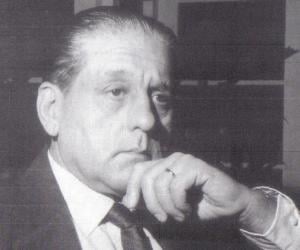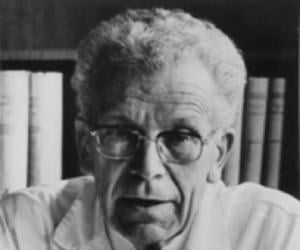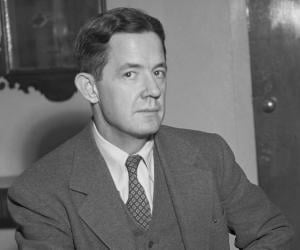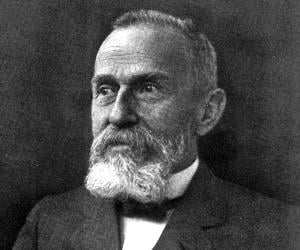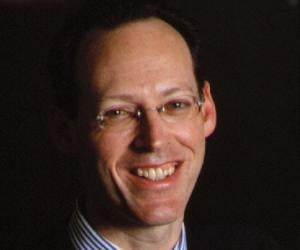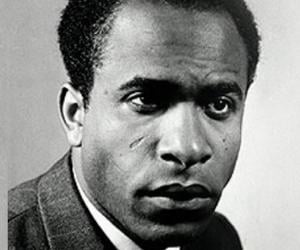Widely regarded as the father of analytical psychology, Carl Jung is one of the most important contributors to symbolization and dream analysis. The concepts of socionics and a popular psychometric instrument called Myers-Briggs Type Indicator (MBTI) were developed from Jung's theory. Apart from working as a psychiatrist and psychoanalyst, Carl Jung was also an artist, craftsman, builder, and prolific writer.
Robert Koch was a German microbiologist and physician. One of the prominent co-founders of modern bacteriology, Koch is credited with creating and improving laboratory techniques and technologies in the field of microbiology. He is also credited with making important discoveries in public health. In 1905, Robert Koch won the Nobel Prize in Physiology or Medicine for his research on tuberculosis.
Almost 2 decades before germ theory was laid down, Ignaz Semmelweis became the first physician to suggest that hand-washing could prevent the spread of puerperal fever and related deaths. Ironically, after being ridiculed for his theory, he died in a mental asylum, due to an infection from a wound.
Galen was a Greek physician, philosopher, and surgeon in the Roman Empire. Regarded as one of the most proficient medical researchers in ancient history, Galen influenced the growth of several scientific disciplines, such as neurology, pharmacology, pathology, physiology, and anatomy. Thanks to the translation of his works into Arabic, Galen's approach to medicine remains influential in the Islamic world.
Best known as the father of modern epidemiology, British doctor John Snow revolutionized medical science with his study of London’s Broad Street cholera outbreak of 1854. His research contributed to the development of London’s sewage and water systems and led to the reduction in cholera cases.
The first to discover the entire process of human blood circulation, physician William Harvey was a Royal College of Physicians fellow. He also served as the personal physician of James I. He later worked at the Bartholomew’s Hospital but was replaced for being a staunch monarchist.
Born into a middle-class African-American family, Charles R. Drew initially excelled in football and track and field, and ended up earning athletic scholarships to fund his studies. He grew up to be a renowned surgeon and revolutionized the storage of blood plasma in blood banks.
Vivien Theodore Thomas was laboratory supervisor who never went to college; yet he rose above poverty and racism to develop a procedure for treating cyanotic heart disease. Initially billed as janitor, he began his career as assistant to surgeon Alfred Blalock first at Nashville University and later at Johns Hopkins, and in time discovered the life-saving technique, eventually becoming a teacher of operative techniques.
British surgeon Joseph Lister was a pioneer of antiseptic medicine usage and made a huge contribution to the development of preventive medicine for bacterial infection. His achievements have been honored by many, such as the makers of Listerine antiseptic and mouthwash, who named their product after him.
Renaissance physician Andreas Vesalius is credited with illustrating the first anatomy textbook. Born into a family of physicians, he studied at the University of Paris medical school and often dissected corpses retrieved from cemeteries. He was the first to reject Galenic anatomy and to introduce human dissection in anatomy.
American paediatrician Benjamin Spock was the first paediatrician who studied psychoanalysis to comprehend needs of children and family dynamics. He penned Baby and Child Care, a best-seller book of the twentieth-century. His concepts of child-rearing influenced generations of parents. Spock was also an Olympic gold-medallist in rowing and ran during the 1972 United States presidential election as People's Party nominee.
Nobel Prize-winning Australian physician Barry Marshall, along with his colleague Robin Warren, proved that gastric ulcers were caused by the bacteria Helicobacter pylori and not by spicy food and other causes as previously believed. Their research made it possible to cure such ulcers by treating the bacteria with antibiotics.
Regarded as the father of psychoanalysis, Sigmund Freud was a neurologist. Despite suffering criticism, psychoanalysis remains influential in the fields of psychology and psychiatry; such is the influence Freud has on humanities. Scholars believe that Freud is one of the most influential personalities of the 20th century and that his impact is comparable to that of Marxism and Darwinism.
Johns Hopkins Hospital co-founder William Osler was also an avid historian. He redefined medical education with his emphasis on clinical experience and his book The Principles and Practice of Medicine. Born to a missionary father in Canada, he was to follow in his father’s footsteps but decided to study medicine instead.
Patch Adams is an American physician, clown, comedian, author, and social activist. Credited with founding the Gesundheit! Institute, Adams advocates an alternative health care model. He also organizes volunteers who travel to various countries every year in order to bring a smile to the faces of patients, orphans, and other people.
Born to Indian-origin parents in the U.S., Sanjay Gupta is an acclaimed neurosurgeon and medical writer. He has also had a successful stint as a medical reporter for CNN, covering medical issues at wars and disasters. He has played himself in the movie Contagion and is a skilled accordion player.
Austrian psychiatrist Viktor Frankl founded logotherapy. He also authored several books, most notably his bestselling autobiographical depiction of his ordeal at various Nazi concentration camps, Man's Search for Meaning. He had lost his parents, brother, and wife in the Holocaust. He later won honors such as the Oskar Pfister Award.
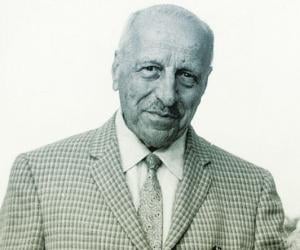
Georgios Papanikolaou was a Greek physician who was a pioneer in early cancer detection. He reported that uterine cancer cells could be detected in vaginal smears as early as 1928, but his work did not receive much attention until the 1940s. He invented the Papanicolaou test, commonly known as the Pap smear or Pap test for cervical screening.
Jack Kevorkian was a pathologist who believed that euthanasia or mercy killing of terminally ill patients was necessary. He later claimed to have helped 130 patients die and earned the nickname “Dr. Death.” He was later convicted of murder for his role in the voluntary euthanasia of a patient.
Frederick Banting was a Canadian medical scientist and physician. In 1923, Banting and Scottish biochemist John James Rickard Macleod received the Nobel Prize in Medicine for the discovery of insulin and its therapeutic potential. Aged 32 at that time, Banting remains the youngest Nobel laureate in physiology or medicine. He was knighted by King George V in 1934.
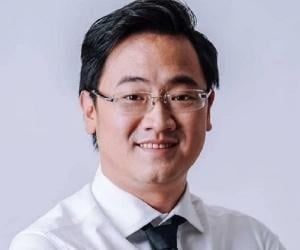
Chinese ophthalmologist Li Wenliang was one of the first to identify the COVID-19 outbreak in Wuhan. In late 2019, he alerted his colleagues of an illness that resembled SARS but didn’t respond to usual treatment. He was reprimanded and later died of COVID-19. He is since regarded as a medical hero.
Born in New Zealand, to a doctor father from Dublin, Maurice grew up to be a Nobel Prize-winning biophysicist. His X-ray diffraction studies of DNA helped James D. Watson and Francis Crick, his fellow Nobel laureates, ascertain the DNA structure. He was also part of the Manhattan Project.
Rudolf Virchow was a German physician, pathologist, anthropologist, biologist, prehistorian, editor, writer, and politician. Nicknamed the Pope of medicine by his colleagues, Virchow is credited with founding the field of social medicine. He is also widely regarded as the father of modern pathology. Rudolf Virchow was the first person to name diseases, such as thrombosis, leukemia, ochronosis, embolism, and chordoma.
Scottish surgeon Robert Liston worked in an era when anesthesia wasn’t invented. He could complete amputations within minutes, thus saving the lives of many when the speed of the surgery made the difference between life and death. Later, he became the first European surgeon to operate under anesthesia.
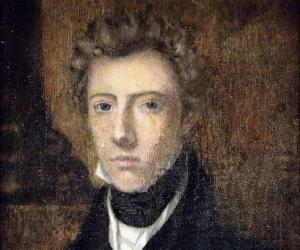
Military surgeon James Miranda Steuart Barry is most noted for making medical reforms and performing one of the first known successful Caesarean sections in Africa. Although during adulthood Barry lived as a man, at birth Barry was named Margaret Ann Bulkley and was known as a girl-child. Barry's birth sex became public after a post-mortem examination.
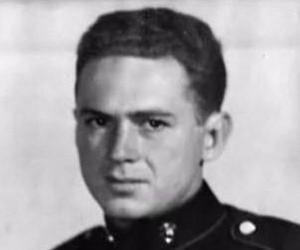
Robert Leckie was an American writer and US Marine. He is best remembered for authoring sports books, children's books, autobiographies, fiction books, and books about the history of the United States military. One of Robert Leckie's memoirs, Helmet for My Pillow, became the basis for the popular war drama miniseries The Pacific.
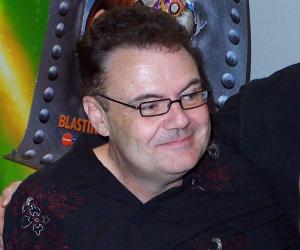
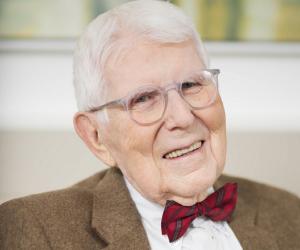
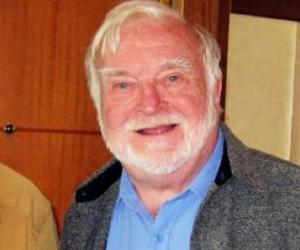
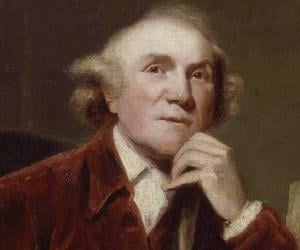
John Hunter was a Scottish surgeon remembered for his efforts to study the human anatomy through investigation and experimentation. An early advocate of scientific method in medicine, Hunter was considered one of the most prominent surgeons of his generation. He is also remembered for paying for the body of Charles Byrne and displaying the skeletal remains in his Hunterian Museum.
René Gerónimo Favaloro was an Argentine educator and cardiac surgeon. He is best remembered for his work on coronary artery bypass surgery. Favaloro is credited with establishing the Favaloro Foundation in an attempt to emulate Cleveland Clinic. He is also credited with founding the Basic Investigation Laboratory, which was financed with his own money.
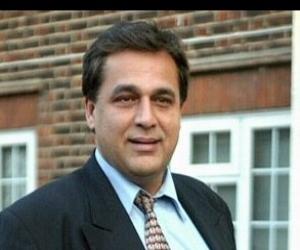
Better known as former lover of Princess Diana, British-Pakistani cardiac surgeon Hasnat Khan was once described by the late princess as “Mr Wonderful.” He had first met Diana at the Royal Brompton Hospital, where the princess had gone to visit a friend. Hasnat is a distant relative of Imran Khan.
Remembered as a medical pioneer and a much-loved mentor, Alfred Blalock is especially noted for his work on traumatic and hemorrhagic shock, which saved thousands of lives during WWII. Working with Vivien Thomas and Helen Taussig, he also developed the Blalock-Thomas-Taussig shunt. Designed to treat children with Blue Baby Syndrome, it ushered a revolution in the field of cardiac surgery.
The son of a musician, Emil Kraepelin, remembered as the founder of psychiatry, was the first to differentiate between dementia praecox, now known as schizophrenia, and manic-depressive psychosis. His classification of mental illnesses influenced much of the research on the subject in the 20th century.
Paul Farmer was a medical anthropologist and physician, who was a co-founder of Partners In Health (PIH), an international non-profit organization. He was a proponent of liberation theology and wrote extensively on health and human rights.
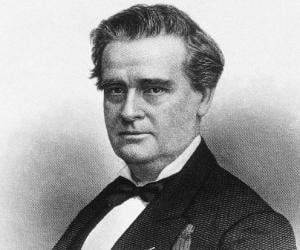
Known as The Father of Modern Gynaecology, J. Marion Sims is remembered for developing a surgical method to deal with vesicovaginal fistula, a childbirth-related complication. However, since his experiments were conducted on Black slave-women, without anesthesia, they were later deemed unethical. He had also headed the American Gynecological Society.
Frantz Fanon was a French-West Indian born in Martinique, a former French colony. A skilled psychiatrist and physician, he realized the impact of colonialism on the human mind while treating French soldiers and Algerians. The author of books such as The Wretched of the Earth, Fanon supported the Algerian independence movement.
